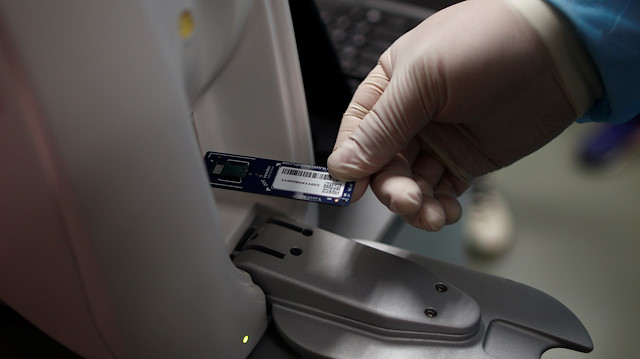
Chinese Embassy in Spain says company that sold ineffective coronavirus test kits does not have official license
Spain purchased 9,000 ineffective rapid test kits, a Spanish official confirmed on Thursday.
Earlier Thursday, Spanish daily El Pais reported that the tests Spain had purchased from the Chinese company Shenzhen Bioeasy Biotechnology were only able to detect the virus in 30% of the cases.
“With this number, it doesn’t make sense to use these tests,” an anonymous source that used the tests told El Pais, adding that tests should at least have a 80% level of sensitivity.
When asked about the useless tests in a press conference, Fernando Simon, Spain’s director of emergency health services, said the country has procured rapid COVID-19 tests from a variety of suppliers.
“A company sent an initial batch of 9,000 tests… it was shown that the specifications of this batch of tests did not correspond to the quality certificates. So, we returned that batch of tests. The company will exchange them for another type of test,” Simon said.
Minutes before Simon’s statement, the Chinese Embassy in Spain tweeted that the company Shenzhen Bioeasy Biotechnology had still not obtained an official license from China’s National Administration of Medical Products.
The embassy added that none of the donations from China or Alibaba to Spain have included that company’s products.
On Wednesday, Spain also announced it had secured a €432 million ($472 million) deal with China to bring in more protective equipment, tests and ventilators.
“The purchase of sanitary material announced by the Spanish Health Ministry is still being processed and the materials still have not left. China’s Ministry of Commerce offered Spain a list of classified providers, which did not include Shenzhen Bioeasy Biotechnology,” read another tweet by the Chinese embassy.
After emerging in Wuhan, China last December, coronavirus has spread to at least 175 countries and regions, according to data compiled by the U.S.-based Johns Hopkins University.
Out of more than 487,600 confirmed cases, the death toll now exceeds 22,000, while over 117,700 have recovered.
Italy, China, Iran, and Spain continue to be the most affected countries.
Despite the rising number of cases, a vast majority of those infected by the virus suffer mild symptoms and recover.


